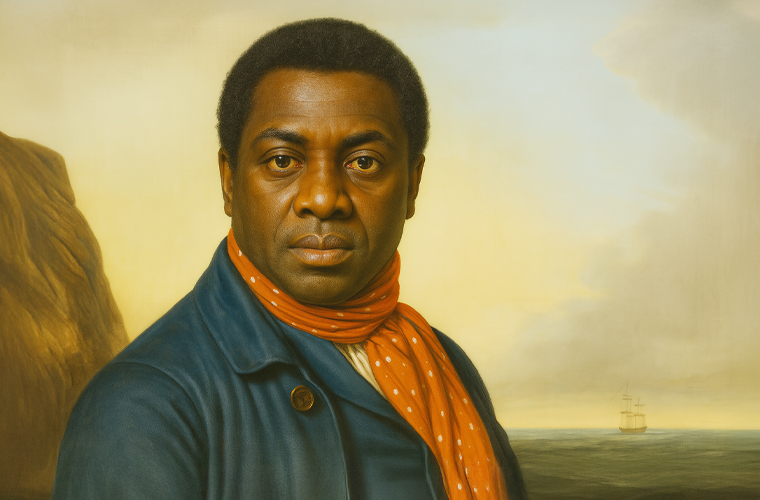Paul Cuffe (1759–1817), an African American ship captain, merchant, and philanthropist, was a prominent advocate for civil rights for African Americans and Native Americans in Massachusetts. He is best known for his pioneering efforts to establish a settlement for free African Americans in West Africa.
Born on January 17, 1759, near New Bedford, Massachusetts, to a Native American mother and an African father, Cuffe Slocum, who had bought his freedom, Paul was the youngest of ten children. After his father’s death during Paul’s teenage years, the family had to support themselves. With only a basic education in reading, writing, and mathematics sufficient for navigation, Cuffe began his maritime career at 16 as a seaman on whaling and fishing vessels. During the Revolutionary War, he was briefly imprisoned by the British but later started small-scale coastal trading. Despite pirate attacks, he prospered, building larger ships and trading from Virginia to Labrador. Eventually, he owned multiple vessels engaged in global trade and whaling.
A devout Quaker, Cuffe rejected his father’s owner’s surname, Slocum, and took his father’s given name, Cuffe. In 1780, he and his brother John petitioned the Massachusetts legislature to grant voting rights to African Americans and Native Americans, or to exempt them from taxes. Though denied, their petition contributed to the 1783 Massachusetts Constitution, which granted equal rights to all state citizens.
Cuffe married at 25 and settled in Westport, Massachusetts, where he funded a local school and supported its teacher, later helping build a Quaker meeting house. His Quaker connections fueled his involvement in improving African American conditions, and he actively opposed slavery and the slave trade, joining abolitionist efforts in the Northern states.
Inspired by the Sierra Leone Colony, founded by English philanthropists in 1787, Cuffe corresponded with English Quakers about resettling African Americans. In 1811, he sailed to Sierra Leone with an all-African American crew to assess the colony. Convinced it could serve as a base for evangelizing Africans, establishing businesses, and halting the slave trade, he returned to the U.S. after consulting allies in England. He planned annual voyages to transport settlers and goods to Sierra Leone, but the War of 1812 delayed his efforts. During this time, he sought government support and recruited free African Americans from cities like Baltimore, Philadelphia, New York, and Boston.
In 1815, Cuffe successfully led 38 settlers to Sierra Leone, assisting them in establishing new homes with colonial authorities. Despite the financial burden, his success sparked growing interest among African Americans. However, the American Colonization Society, backed by Southern slave owners and advocating for the resettlement of former slaves, alarmed free African Americans who feared forced deportation. Before Cuffe could further his project, his health declined, and he passed away in 1817.

